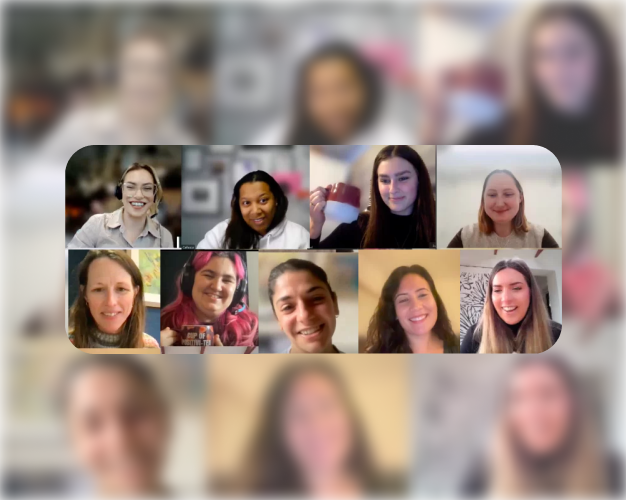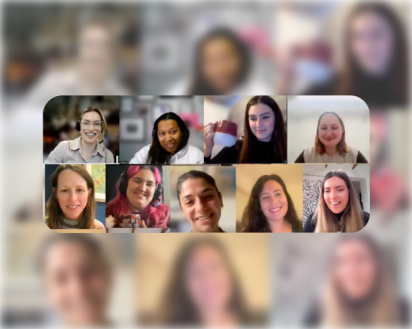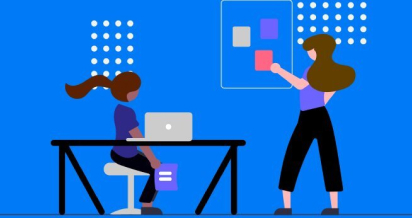In the wake of International Women’s Day, we want to continue to celebrate the achievements of women in Digital Experimentation outside of a designated day. We should celebrate the achievements and contributions of women every day, recognising their talent and invaluable impact on the industry.
For the second and final part of our series, Celebrating Women In Digital Experimentation, we sat down to chat with Rosie Enoch, Product Optimisation Lead at Staysure. After working in trading and content roles within the fashion industry, Rosie moved over to financial services and has been working in insurance roles for the last six years.
We also spoke with Celeste Sanders, Data Scientist at Yum Brand’s Pizza Hut, whose journey has definitely been an interesting one. Celeste started her career as a Maths teacher for twenty years and then decided to make the shift into the world of data science and analytics.
Finally, Gabbi Caimmi, Experimentation Lead at the BBC, also joined our discussions. Gabbi is new to her role at the BBC, but has been focused on Experimentation for the last five to six years of her career.
What was it that initially sparked your interest in Experimentation?
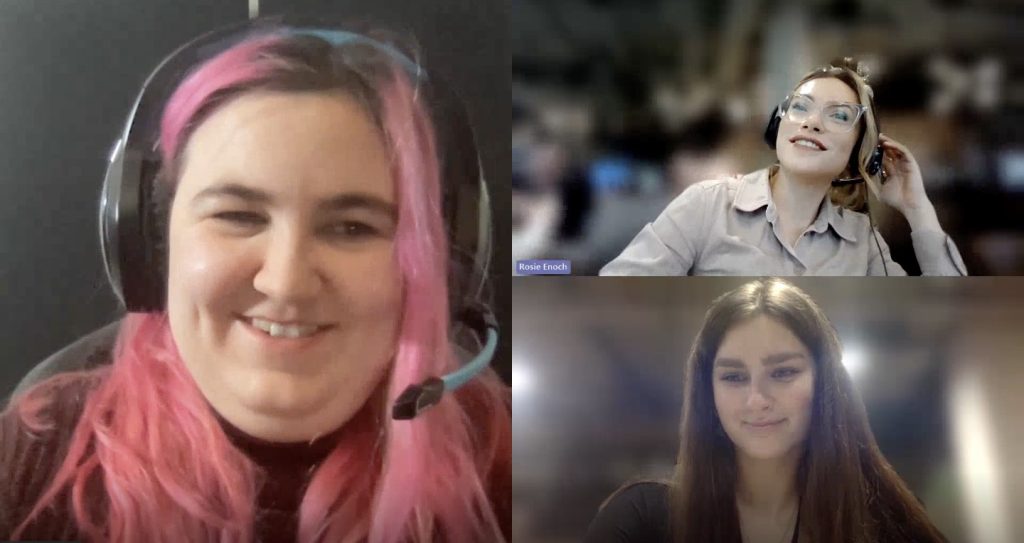
Celeste – One of my favourite classes I took was a human decision-making class and it was all about the math behind why people do what they do. Experimentation is exactly that. It’s presenting people with a few options and seeing if we can accurately predict what people do.
I think that’s the thing that excited me the most in this field, the infinite opportunities for us to be able to positively impact people’s behaviour.
It may seem like it’s just pizza, but it’s also making sure that we’re providing value to families, making sure that we are giving opportunities in the workplace for all sorts of people.
Rosie – It was definitely the creative side that sparked my interest, and it’s a great role where you’re not stuck to one industry.
Gabbi – It’s a very scientific way of saying what’s wrong and right. I was seeing how much value this methodology was bringing and it’s a very powerful tool that you can use to better shape your development.
Have you seen any changes in the industry’s attitude towards gender diversity? And if you have seen changes, what are some positive changes made?
Rosie – I came from fashion where disproportionately there were more women than probably most businesses. It was when I first moved to financial services that I felt a different atmosphere, and because people were not nice, or not friendly. It was just businesses that I felt hadn’t come up to speed in recent times.
I think especially when you’re looking at the digital space and tech roles, there’s definitely a lack of representation of women. Even in the fashion industry, the IT teams, or the digital teams would have more men in them. Specifically those roles, those were kind of seen as a man’s job.
I’ve always felt very confident and comfortable in my roles, but I can see why someone would feel like they were a minority by being a woman in doing what we do.
Gabbi – There’s definitely gender representation in my team, but I would also say in the wider data department, which is something I was originally surprised by, as I would expect a lot of data science roles to be more male dominated.
I think it’s dependent on the nature of the workplace, but I’ve always been fairly surprised to work in a very gender represented environment.
Celeste – I really think until we start to have more opportunities for women to take leadership positions, men have to step up and advocate for a diverse atmosphere. Especially in Experimentation! Having a diverse group of thought means that you’ve got to have more equality and more balance from all demographics.
In 2023 some data came out that said only 26.7% of women hold tech-related jobs. What do you think are some of the obstacles that are preventing women from getting involved?
Rosie – I think having more females talk at conferences and giving them the stage a bit more to share results would be great. Sometimes, when a female has the limelight, it’s always someone who is part of a C-suite, or in a high position, and I think that creates a barrier that to get to these roles, ‘I have to be top of my game, or power-hungry.’ When actually, giving that middle management the microphone could help.
Celeste – I think it goes back to this mindset that our culture has created where if it’s a demanding, high paced job, a woman shouldn’t be in it. I think we need to make sure that we’re talking about these jobs in a way that you can feel balanced.
Internally, imposter syndrome is unbelievably real! Every day I’m fighting that part of me that says, “what are you doing here, you don’t belong.”
Gabbi – There is definitely some bias where we tend to think that tech-related jobs tend to be more male dominated. Also, workplace culture is really important to make environments gender friendly and how a company fosters gender representation within their workplace.
It’s all about calling those statistic out, but it should be irrelevant. It shouldn’t be about gender, it should be about competency. For now though, I think it’s important for companies to be transparent and how they are tracking culture to make sure they are being inclusive.
Have you ever experienced imposter syndrome, or feelings of self-doubt? How did you overcome them?
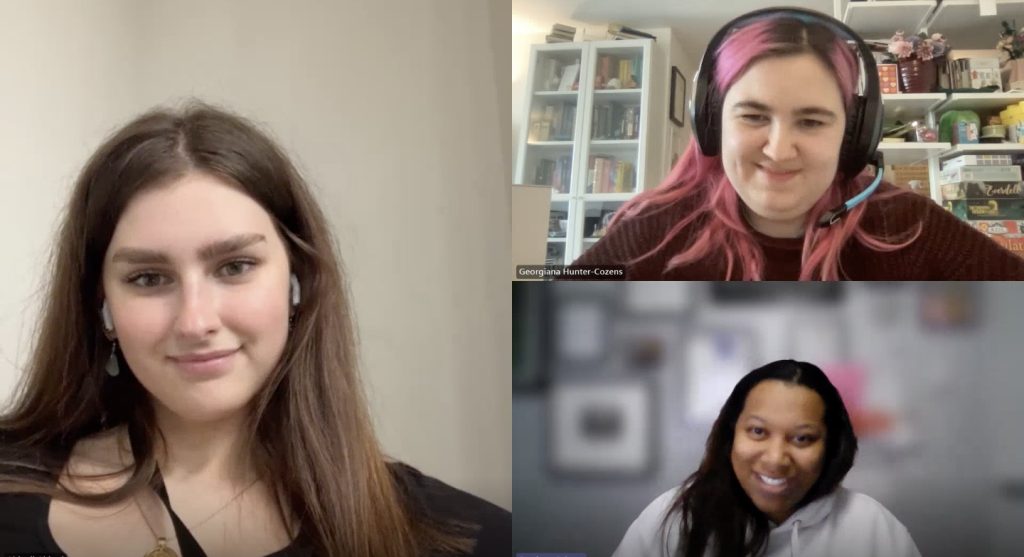
Celeste – Surround yourself with women who are powerful. Those who are mentally and emotionally empowering to you. At Pizza Hut, I’ve had some incredible coaches, particularly in leadership. They’ve been uplifting and empowering.
I think just being a constant student is also interesting about Experimentation, you are always learning, there is always something new.
Gabbi – Definitely, especially in Experimentation, you are exposed to so many disciplines that imposter syndrome is impossible to not deal with at some point.
When I joined a data team for the first time three years ago, it was very difficult to begin with, I began to feel like I didn’t have enough knowledge to be at the forefront.
I would encourage people to be curious and ask questions when you come across something you don’t understand.
Rosie – Imposter syndrome is a funny one, I’ve definitely felt that at certain points in my career, especially when I was progressing up to that next point and going from a business where Experimentation was more of an uphill battle, to a business where everyone wanted to lap it up, so all of a sudden, all eyes are on you.
As a female, I think sometimes I definitely questioned myself more so because there is a lack of female representation. It makes you feel like, should I be here? Why is it me in this role? The way I’ve overcome it has just been getting experience within those roles, and that created the confidence I probably lacked.
Are there any resources you found useful for your own self-development, or anything else in general learning about Experimentation?
Celeste – Youtube! LinkedIn Learning is also pretty amazing, as well as Coursera. Also, if I need a quick understanding of something, ChatGPT is the one to go to. The other day there was a statistical piece that didn’t quite make sense to me, so I asked ChatGPT to explain it to me like I live in a town that’s a bakery! It explained it to me in terms of cakes and cookies and it made perfect sense.
Rosie – I did a CXL mini degree, it’s a good foundation for anyone getting into Experimentation. I think there’s a lack of knowledge with people that don’t work in experimentation. They think they can just do it by running a test, and actually it’s so much more technical than that. You’ve got to be very into data and statistics, but also be quite creative and very technical.
Gabbi – Attending conferences is very important, even if it’s just for networking. It’s important to get to know the other people in the industry, not just to get to know the content, but to get to know how things are done elsewhere.
What do you think makes a good Experimentation programme?
Gabbi – Making sure that Experimentation is embedded within the product development process as much as possible. The way I see it is that Experimentation is a way of mitigating risks, but also fosters risk taking.
Rosie – Solid data. I know data is a problem in some businesses where they haven’t got the right tagging, they haven’t got the right tools, and. sometimes running a test will be your initial data point.
I you haven’t got the resources, I think just listen to your customers, talk to them in any way you can, look at your analytics to see where the friction points are, and really use your quantitative and qualitative data sources together and not just on their own.
Celeste – I’m discovering that having a repository of learnings to make sure that we are communicating effectively with the stakeholders and the business at large and following the vision of the company.
What experiment were you most excited about/find the most interesting?
Celeste – The one that comes to mind is the one that I did completely on my own as it was support for a defect on the website. I was able to use the Optimizely tool to support the business and while I didn’t necessarily make them money, I saved them loads!
Gabbi – I don’t know about one experiment, but I love working with data. I like how data can really bring a story to life.
Rosie – I can’t speak for Staysure, because I’ve not been there that long.
One I am very proud of was for another insurer where we redesigned all the additional products that we sold. The end result was that a lot more customers bought these products, which is great from a business perspective, but actually the bit that really interested me was that the tests worked because we really got to the root cause of a customer problem.
How do we celebrate female achievements more?
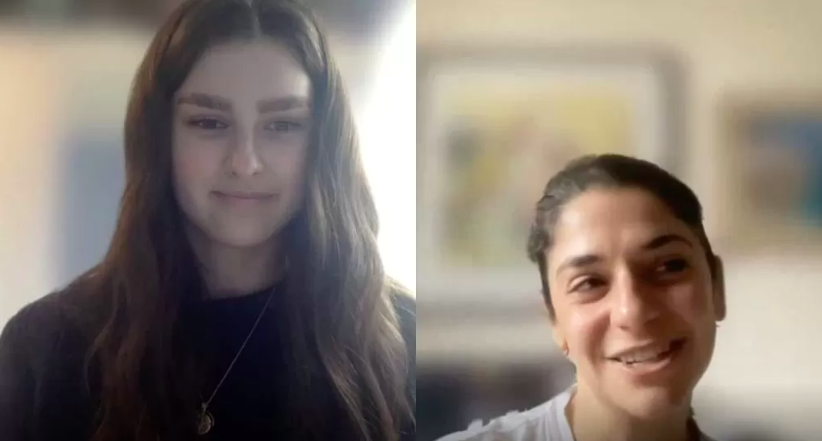
Rosie – I would love to eventually get to a point where we don’t have to talk about women separately, I know at the moment we need that.
I went to a conference recently where there was a ‘women’s lunch’ because there’s a real lack of representation for women in insurance in general, not just experimentation.
That was actually a time where I felt very divided. I think it was supposed to be a nice sentiment where we could all chat with each other and share our experiences, but it just felt like they shoved the women in another room. There was a real lack of women on stage, there were a few, but I would just love to see more women talking and like I’ve said, not just at the highest point of their career, all levels.
Hopefully we can get to a point where we don’t have to talk about women in Experimentation and it’s just a thing.
Gabbi – The Women in Experimentation Network is a great initiative for mentoring and sponsorship that can inspire different females from different backgrounds and different industries to support and guide each other.
Celeste – I’m excited by the Women in Experimentation slack channel and the upcoming panels this year. It’s really encouraged me to try and find some local groups to do that with.
We have a coffee chat with our team every Monday, just to check in with each other, especially because most of us are remote.
How do you approach networking and building professional relationships in Experimentation?
Rosie – I love a conference! (The lunch is always great). The networking at the end of events like that is always good, and just chatting to people in the industry is great. I think working with agencies is great and really helps having an external person to your business where you can share ideas around.
Gabbi – I’ve always attended conferences, even though I’m a shy person, I try to challenge myself to at least come of a conference knowing three or more names, and three more things I didn’t know before.
Looking back on your career journey, is there any advice you would want to give yourself?
Celeste – Know your value and know what you’re capable of.
Gabbi – I would tell myself at the beginning of my career to be open to new things and not be scared of asking questions.
Rosie – I know this is cheesy, but I’m the kind of person that doesn’t regret anything! I would probably say to have more confidence in myself. When I moved from fashion into financial services, I definitely lost a bit of confidence. I felt like I wasn’t a loud voice in a room of very loud men.
End of Part Two
If you didn’t get a chance, make sure to check out part one! It’s so important to recognise and honour the remarkable women who are making significant contributions to the field of digital Experimentation, especially with shocking statistics that state only 26.7% of women hold tech-related jobs.
Fostering a culture of collaboration, communication, and celebration remains paramount in empowering women and driving collective success in Experimentation.
Through our insightful conversations with these amazing women driving change, we hope you’ve gained valuable perspectives on their journeys, challenges, and aspirations within Experimentation.
We want to truly celebrate the achievements of all women in the digital space and commit to building a more inclusive future for all.
